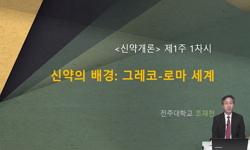Objectives: To identify whether and how Korean people understand `qi deficiency` and related symptoms. Methods: We developed a questionnaire based on the experts` comments and modification asking understanding of `qi deficiency` and symptoms or situat...
http://chineseinput.net/에서 pinyin(병음)방식으로 중국어를 변환할 수 있습니다.
변환된 중국어를 복사하여 사용하시면 됩니다.
- 中文 을 입력하시려면 zhongwen을 입력하시고 space를누르시면됩니다.
- 北京 을 입력하시려면 beijing을 입력하시고 space를 누르시면 됩니다.
https://www.riss.kr/link?id=A87034027
- 저자
- 발행기관
- 학술지명
- 권호사항
-
발행연도
2009
-
작성언어
-
- 주제어
-
KDC
500
-
등재정보
KCI등재
-
자료형태
학술저널
- 발행기관 URL
-
수록면
67-75(9쪽)
-
KCI 피인용횟수
0
- 제공처
-
0
상세조회 -
0
다운로드
부가정보
다국어 초록 (Multilingual Abstract)
Objectives: To identify whether and how Korean people understand `qi deficiency` and related symptoms. Methods: We developed a questionnaire based on the experts` comments and modification asking understanding of `qi deficiency` and symptoms or situations related with it. Total 128 workers at community healthcare centres across the country completed the questionnaire. They were asked if they know the meaning of the word `qi deficiency` and to give at least three symptoms or situations that they conceive are related with `qi deficiency`. The responses were collected and descriptive and frequency analyses were performed. Results: Approximately 79.7% of responders answered that they understand the meaning of the word `qi deficiency` and of them, 71.6% reported that they experience `qi deficiency` sometimes or more. Regarding somatic or condition-related responses in qi deficiency, lack of power or energy (26.6%), tiredness or fatigue (22.2%), dizziness (7.2%) or sweating (6.3%) were the most frequently reported symptoms. They related symptoms such as loss of appetite (4.3%) or easily catching colds (2.4%) with qi deficiency. Factors described in traditional pattern recognition of qi deficiency were not exactly matched with the responses from this survey. Conclusions: Korean people have rather a broad concept of qi deficiency covering a range of symptoms and this should be taken into account in developing a deficiency assessment tool.
참고문헌 (Reference)
1 양기상, "한의진단명과 진단요건의 표준화연구(II)" 40-41, 1996
2 양기상, "한의진단명과 진단요건의 표준화연구(I)" 한의학연구소 1995
3 문진석, "한의 공통 임상 기록 서식을 이용한 辨證과 症狀의 분포 조사 -虛證을 중심으로-" 한국한의학연구원 14 (14): 47-66, 2008
4 김숙경, "한열변증 설문지 개발" 7 (7): 64-75, 2004
5 김수영, "한국형건강관련 삶의 질 측정도구의 개발 - 신뢰도 및 타당도 검증 -" 20 (20): 1197-1208, 2000
6 국립국어연구원, "표준국어대사전" 두산동아 1999
7 박영재, "통계기법을 활용한 변증정량화연구" 5 (5): 306-330, 2001
8 최승훈, "최승훈 교수의 한의학이야기" 푸른나무 1997
9 고호연, "중풍환자의 기허변증지표에 관한 연구" 12 (12): 69-77, 2006
10 강병갑, "중풍환자의 기허변증 진단 기준에 관한 연구" 대한동의병리학회 21 (21): 1581-1585, 2007
1 양기상, "한의진단명과 진단요건의 표준화연구(II)" 40-41, 1996
2 양기상, "한의진단명과 진단요건의 표준화연구(I)" 한의학연구소 1995
3 문진석, "한의 공통 임상 기록 서식을 이용한 辨證과 症狀의 분포 조사 -虛證을 중심으로-" 한국한의학연구원 14 (14): 47-66, 2008
4 김숙경, "한열변증 설문지 개발" 7 (7): 64-75, 2004
5 김수영, "한국형건강관련 삶의 질 측정도구의 개발 - 신뢰도 및 타당도 검증 -" 20 (20): 1197-1208, 2000
6 국립국어연구원, "표준국어대사전" 두산동아 1999
7 박영재, "통계기법을 활용한 변증정량화연구" 5 (5): 306-330, 2001
8 최승훈, "최승훈 교수의 한의학이야기" 푸른나무 1997
9 고호연, "중풍환자의 기허변증지표에 관한 연구" 12 (12): 69-77, 2006
10 강병갑, "중풍환자의 기허변증 진단 기준에 관한 연구" 대한동의병리학회 21 (21): 1581-1585, 2007
11 김강태, "설문지 분석법에 의한 氣虛 血虛 氣滯 陰虛 陽虛證의 표준 증상 및 남녀차이 연구" 대한동의병리학회 20 (20): 1742-1748, 2006
12 박경모, "기혈음양의 허증에 대한 한의 진단 모델의 성립과 확장" 대한동의병리학회 17 (17): 1359-1367, 2003
13 윤상협, "脾虛(氣虛.陽虛)證에 關한 文獻的考察" 10 (10): 53-64, 1989
14 마루야마도시아끼, "氣란 무엇인가-논어에서 신과학까지" 정신세계사 1992
15 우홍정, "氣血陰陽虛損의 辨證 분석을 위한 설문문항 개발" 대한한방내과학회 29 (29): 856-870, 2008
16 Koh K, "Development of the stress-induced cognition scale" 47 (47): 384-392, 2006
동일학술지(권/호) 다른 논문
-
오공 약침을 병행한 경추증성 척수증 환자 1례에 대한 임상적 고찰
- 경락경혈학회
- 권호영 ( Ho Young Kwon )
- 2009
- KCI등재
-
동일 경락상의 요혈(要穴)에서 체표 에너지 분포도 분석
- 경락경혈학회
- 김수병 ( Soo Byung Kim )
- 2009
- KCI등재
-
측정 자세의 변화에 따른 맥의 변화 특성: 선 자세, 앉은 자세, 누운 자세
- 경락경혈학회
- 권선민 ( Sun Min Kown )
- 2009
- KCI등재
-
합곡(合谷) 복류(復溜) 보사(補瀉) 시술(施術)이 소한(少汗)에 미치는 영향(影響)(1)
- 경락경혈학회
- 최찬헌 ( Chan Hun Choi )
- 2009
- KCI등재
분석정보
인용정보 인용지수 설명보기
학술지 이력
| 연월일 | 이력구분 | 이력상세 | 등재구분 |
|---|---|---|---|
| 2027 | 평가예정 | 재인증평가 신청대상 (재인증) | |
| 2021-01-01 | 평가 | 등재학술지 유지 (재인증) |  |
| 2018-01-01 | 평가 | 등재학술지 유지 (등재유지) |  |
| 2015-01-01 | 평가 | 등재학술지 유지 (등재유지) |  |
| 2012-04-19 | 학술지명변경 | 한글명 : 경락경혈학회지 -> Korean Journal of Acupuncture |  |
| 2011-01-01 | 평가 | 등재학술지 유지 (등재유지) |  |
| 2009-01-01 | 평가 | 등재학술지 유지 (등재유지) |  |
| 2007-03-29 | 학회명변경 | 한글명 : 대한경락경혈학회 -> 경락경혈학회영문명 : 미등록 -> Society for Meridian & Acupoint |  |
| 2006-01-01 | 평가 | 등재학술지 선정 (등재후보2차) |  |
| 2005-01-01 | 평가 | 등재후보 1차 PASS (등재후보1차) |  |
| 2003-01-01 | 평가 | 등재후보학술지 선정 (신규평가) |  |
학술지 인용정보
| 기준연도 | WOS-KCI 통합IF(2년) | KCIF(2년) | KCIF(3년) |
|---|---|---|---|
| 2016 | 0.65 | 0.65 | 0.63 |
| KCIF(4년) | KCIF(5년) | 중심성지수(3년) | 즉시성지수 |
| 0.55 | 0.54 | 0.542 | 0.11 |




 KISS
KISS




